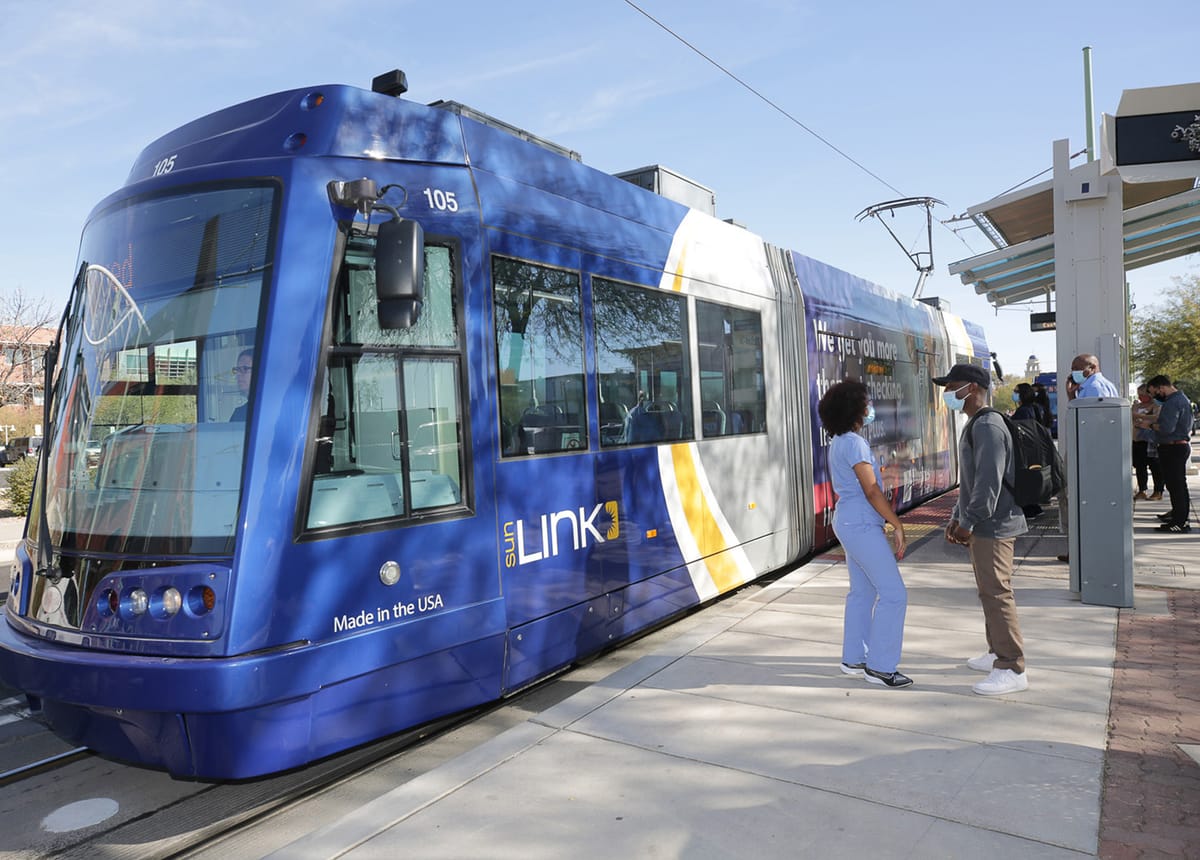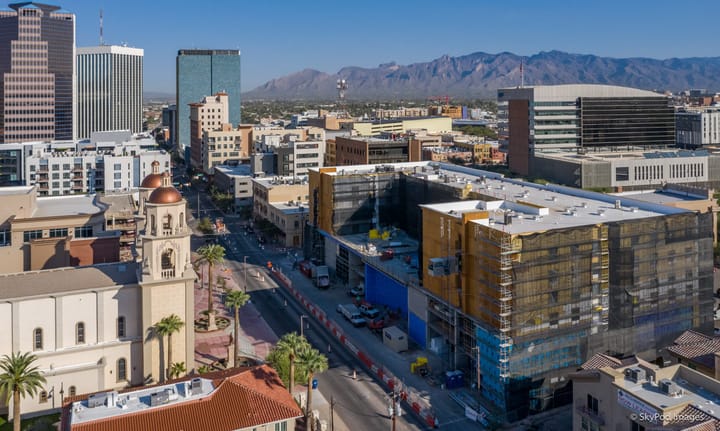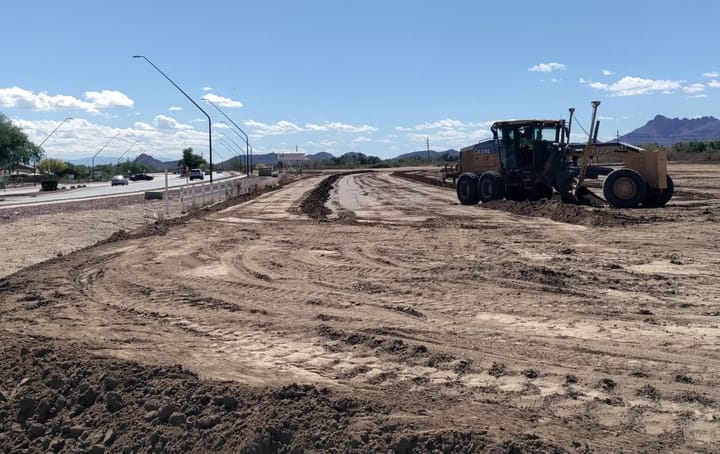City considers solutions to maintain free public transit
Proposals include amending state laws, creating a Special Taxing District for transit, using impact fees for transit services and more.

With the era of federal pandemic relief funding having come to a close, Tucson’s mayor and council are mulling options to keep public transportation fare-free.
Public transit has been free in Tucson since March 2020 and will remain free until at least June 2025. But with no more pandemic relief funds and a new presidential administration incoming, local leaders have already begun discussing how to ensure that the city can continue to keep public transit fare-free.
By forgoing fare collection, the city misses out on $10 million to $13 million in revenue each year, but city officials and local advocates have stressed the importance of fare-free transit in addressing poverty in the community.
Last week, Tucson’s mayor and council heard several funding options that could help ensure the long-term sustainability of fare-free transit through the city’s Sun Tran, Sun Link, and Sun Van systems.
The proposals were split into two categories: immediate solutions and those requiring changes to state laws for long-term impact.
Among the proposals are legislative amendments to state laws that would enable the city to implement a Transportation Utility Fee, create a Special Taxing District for transit, use impact fees for transit services or institute a rental car tax.
Mayor Regina Romero stressed the importance of continuing to build an efficient and accessible transportation system and highlighted ongoing efforts to improve bus stops with better wayfinding, accessibility, lighting, and tree shade.
“Access to fair, free transit is an important factor in reducing poverty in our community and meeting our climate, economic development, and equity goals,” Romero said.
There are several requirements under state law to form a Metropolitan Public Transit Authority, which would provide long-term, sustainable funding but would require coordination with the state legislature.
On the other hand, the city could act immediately on measures that include partnering with regional stakeholders, increasing the hotel/motel surcharge, and adjusting the Public Utility Tax.
During the meeting, city staffers emphasized the importance of building partnerships with educational institutions like the University of Arizona, Pima Community College, and Tucson Unified School District, all of which benefit from free transit services.
These partnerships, still under discussion, could secure financial support from these organizations to help sustain the transit system.
We believe there is a renewed interest to have those conversations on ways we could enhance the transit system with our educational partners,” said Transportation Mobility Department Director Samuel Credio.
The city's hotel/motel surcharge, currently $4 per night, generates about $2 million for each $1 increase in the fee. This revenue could be allocated to transit operations, particularly given mass transit's role in supporting the local tourism industry.
Tucson’s hotel tax rate is competitive with other Arizona cities, although Councilmember Karin Uhlich noted that it still lags behind cities like Glendale and Mesa, which have additional layers of hotel tax tied to special districts.
An increase in the Public Utility Tax, which currently charges 6% on telecommunications services and 4.5% on other utilities, could also generate additional revenue.
A 0.5% rise in the PUT is expected to bring in about $1.7 million each year for the transit system. Since its last increase in 2016, the PUT has consistently contributed to the city’s General Fund, with revenue steadily growing.
City Manager Tim Thomure confirmed that the current fiscal year’s budget fully funds fare-free transit and that this funding is included in the city’s five-year financial plan through FY 2026.
He also acknowledged the financial challenges of maintaining fare-free transit.
"We need to have a clear, informed decision on fare collection," Thomure said. "The timing for implementing fares would be approximately a six-month window after a decision is made, including the time needed for (an) analysis to ensure equity in service delivery."
Romero also pointed to the Prosperity Initiative, a regional effort that includes both the city and Pima County and prioritizes transportation options to connect disadvantaged communities to jobs and resources.
"Transportation insecurity is a key factor in persistent poverty," she said. "That’s why we decided to budget for fare-free transit until 2026."
Councilmember Paul Cunningham highlighted the significant increase in bus ridership in recent years.
"We've gone from 10 million bus riders in 2021 to nearly 15 million in 2023," said Cunningham. “Sun Link has 1.7 million riders on a $4.7 million budget, which is remarkable for a transit system of its size. It’s more cost-effective than many other cities’ systems.”
City staff recommend focusing on partnerships with local institutions, increasing the hotel/motel surcharge, and considering adjustments to the PUT as immediate steps to ensure the sustainability of Tucson’s mass transit system.
Council members agreed that these strategies align with the city’s long-term goals of maintaining infrastructure, prioritizing public investment in developed areas, and enhancing transit options as part of a regional, multi-modal transportation network
"These conversations with our educational partners and stakeholders will be critical as we look to grow the system," said Credio.
With no vote scheduled on the issue, the council will continue discussions in coming weeks, with further updates expected as negotiations progress.
Angelina Maynes is a journalism major at the University of Arizona and reporter with Tucson Spotlight. Contact her at angelinamaynes@arizona.edu.
Tucson Spotlight is a community-based newsroom that provides paid opportunities for students and rising journalists in Southern Arizona. Please support our work with a paid subscription.




